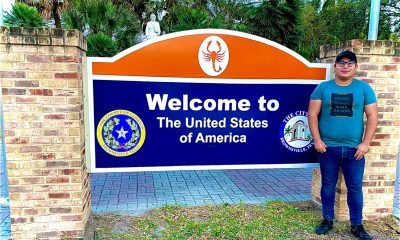Mexico
Five Calif. Congress members visit Tijuana shelters for LGBTQ asylum seekers
Delegation traveled to Mexican border city on May 6
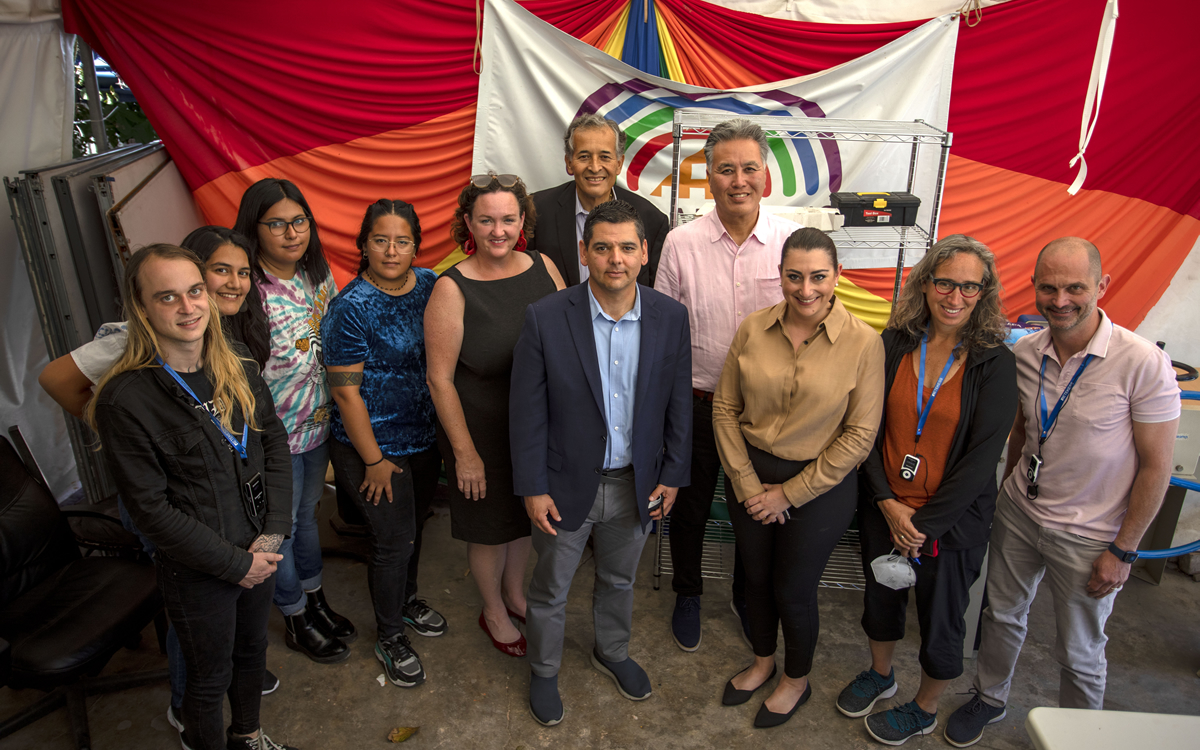
Five members of Congress from California last week visited two shelters for LGBTQ asylum seekers in Tijuana.
Congress members Mark Takano, Raul Ruiz, Juan Vargas, Katie Porter and Sara Jacobs on May 6 toured Jardín de las Mariposas and Casa Arcoíris.
The Council for Global Equality organized the trip.
Chair Mark Bromley, Co-chair Julie Dorf and Senior Policy Fellow Bierne Roose-Snyder traveled to Tijuana along with Organization of Refuge, Asylum and Migration Executive Director Steve Roth. Representatives of the Transgender Law Center and the Refugee Alliance also met with the group.
The trip began in San Diego.
“As we work to fix our broken immigration system, improve border efficiency, and restore asylum at our borders, we must take a humanitarian approach and proactively protect all vulnerable populations lawfully seeking asylum in our country,” said Ruiz in a statement his office issued before the trip. “The LGBTQI community is one of the most vulnerable to face persecution, violence, and abuse in their home countries, throughout their journey to our borders, and in detention centers. As a trained humanitarian, I am going to assess their vulnerabilities and help provide humanitarian protections that are consistent with our American laws and their human rights.”
I visited Tijuana with congressional colleagues and advocates from @Global_Equality to learn more about the threats LGBTQ+ asylum seekers face and what we can do to help. I’ll never stop working for human rights for LGBTQ+ folks and asylees, on both sides of the border. pic.twitter.com/DTydCGJIEw
— Congresswoman Sara Jacobs (@RepSaraJacobs) May 7, 2022
The trip took place less than a month before the scheduled end of a Centers for Disease Control and Prevention rule that closed the Southern border to most asylum seekers and migrants because of the pandemic. The trip also coincided with the ILGA World Conference that took place last week in Long Beach.
Last week, ORAM was thrilled to welcome five US Congressmembers to El Jardín de Las Mariposas, an #LGBTIQ #refugee shelter in Tijuana that we partner with! ORAM ED Steve Roth spoke about ORAM’s support for the residents and ways that the congressmembers can show their support. pic.twitter.com/kDBJPsmYvQ
— ORAM (@ORAMrefugee) May 9, 2022

The Mexican Senate on Thursday approved a bill that would ban so-called conversion therapy in the country.
Yaaj México, a Mexican LGBTQ rights group, on X noted the measure passed by a 77-4 vote margin with 15 abstentions. The Chamber of Deputies, the lower house of Mexico’s congress, approved the bill last month that, among other things, would subject conversion therapy practitioners to between two and six years in prison and fines.
The Senate on its X account described conversion therapy as “practices that have incentivized the violation of human rights of the LGBTTTIQ+ community.”
“The Senate moved (to) sanction therapies that impede or annul a person’s orientation or gender identity,” it said. “There are aggravating factors when the practices are done to minors, older adults and people with disabilities.”
Mexico City and the states of Oaxaca, Quintana Roo, Jalisco and Sonora are among the Mexican jurisdictions that have banned the discredited practice.
The Senate in 2022 passed a conversion therapy ban bill, but the House of Deputies did not approve it. It is not immediately clear whether President Andrés Manuel López Obrador supports the ban.
Canada, Brazil, Belgium, Germany, France, and New Zealand are among the countries that ban conversion therapy. Virginia, California, and D.C. are among the U.S. jurisdictions that prohibit the practice for minors.
Mexico
Transfeminicide violence in Mexico: At least five trans women killed in first two weeks of 2024
Activists have criticized public officials over hate speech
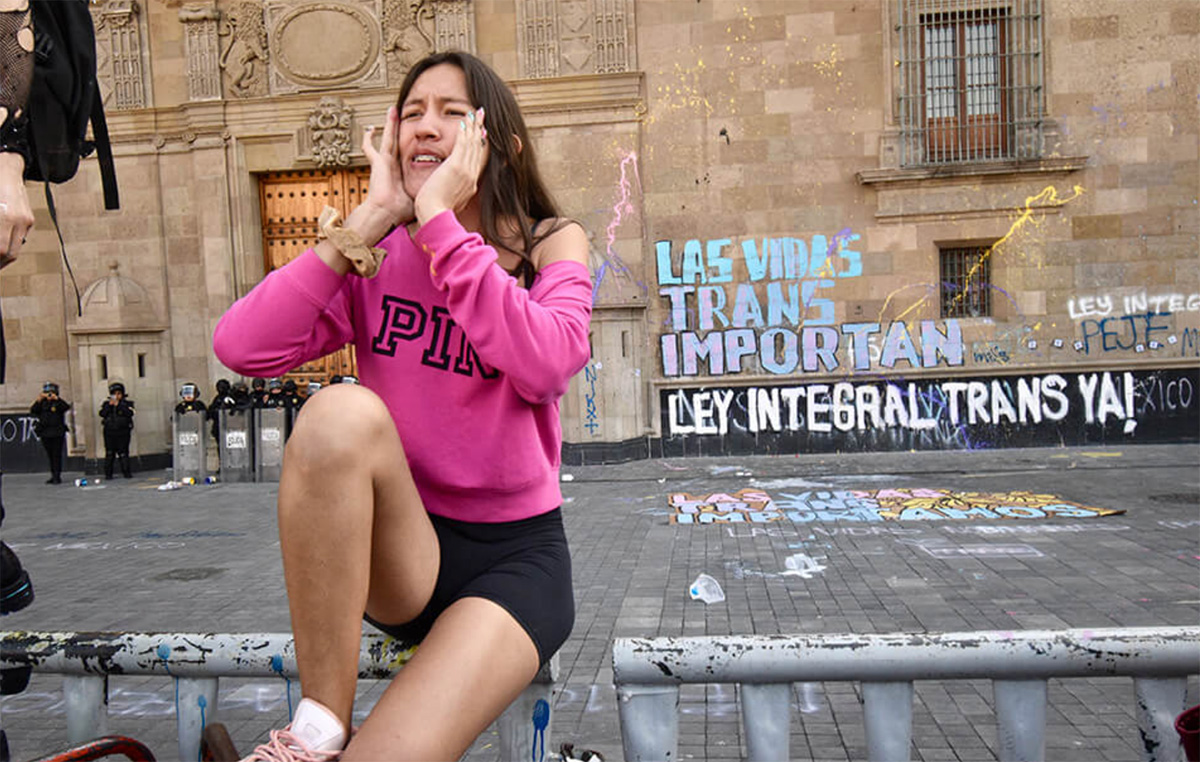
A Spanish version of this article can be found here.
Gaby Ortiz, renowned trans stylist in Hidalgo, an unidentified trans woman in Tlaquepaque, Jalisco, Vanesa, trans woman in Coatzacoalcos, Miriam Ríos activist and trans commissioner of the Movimiento Ciudadano political party in Michoacán, and Samantha Fonseca, a trans activist and human rights defender in Mexico City, have been murdered in the first 15 days of the year.
People belonging to LGBTTTIQ+ groups protested outside the National Palace against the escalation of violence against trans people and hate crimes.
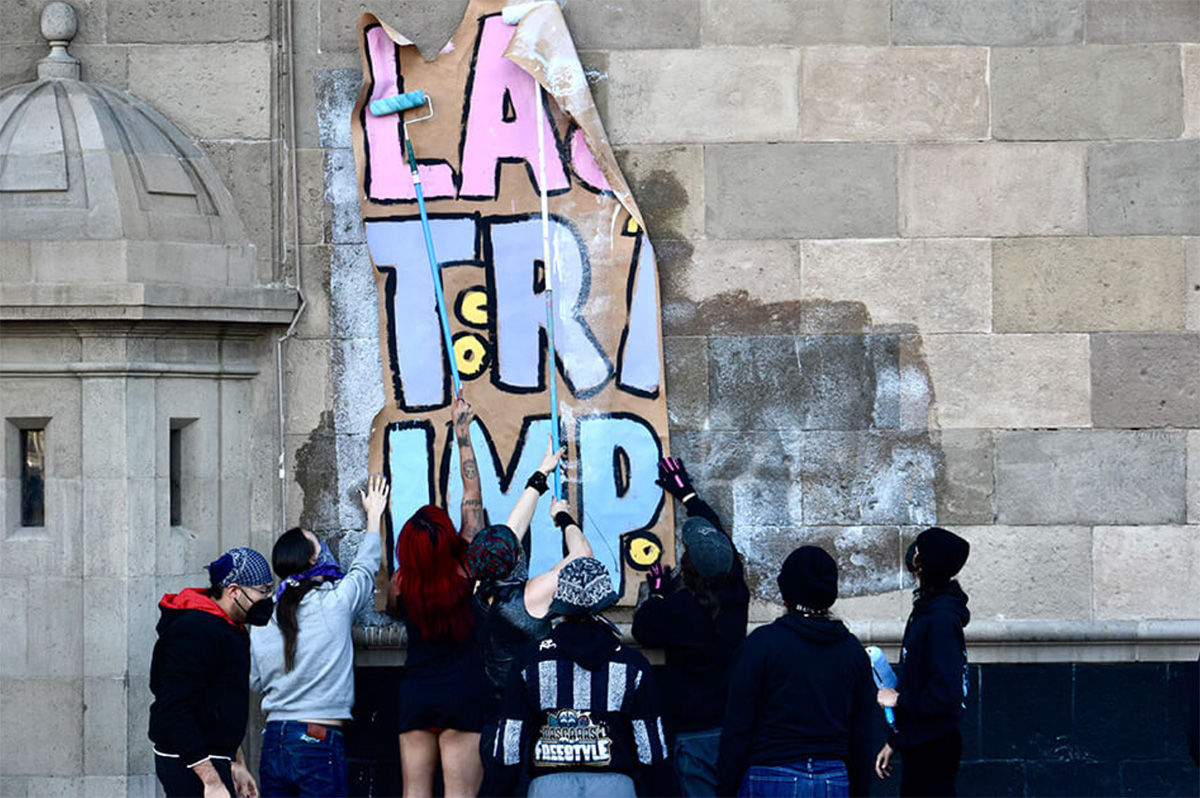
Victoria Sámano, a trans activist, denounced the hate speeches of leaders, officials and public representatives targeting trans people and urged the president to condemn this violence.
“We demand that, in your capacity as representative of this country, you take a stand against the violence that trans people experience.” – Victoria Sámano, trans activist and founder of LLECA (Listening to the Street)
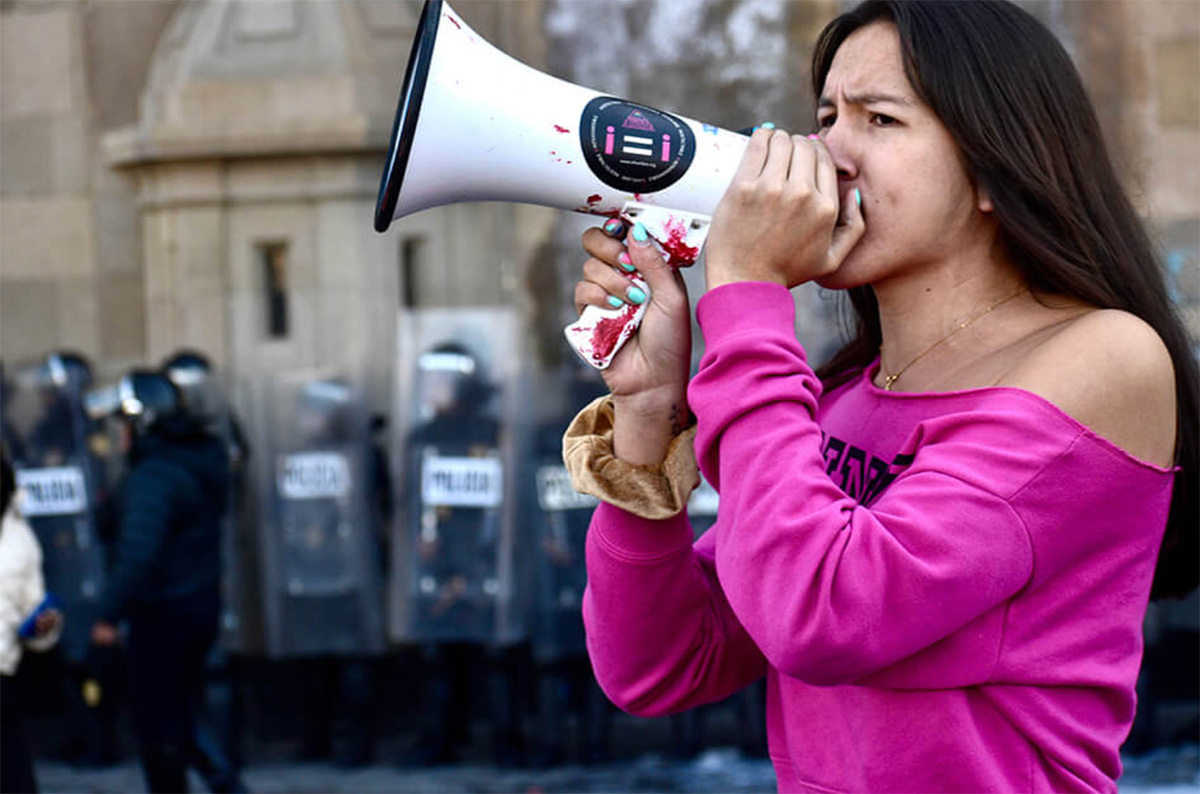
The National Observatory of Hate Crimes against LGBTQI+ People defines hate crimes as culturally founded and systematically and socially widespread behaviors of contempt against a person or group of people based on negative prejudice or stigma related to an undeserved disadvantage, and which has the effect of harming your fundamental rights and freedoms, whether intentionally or unintentionally.
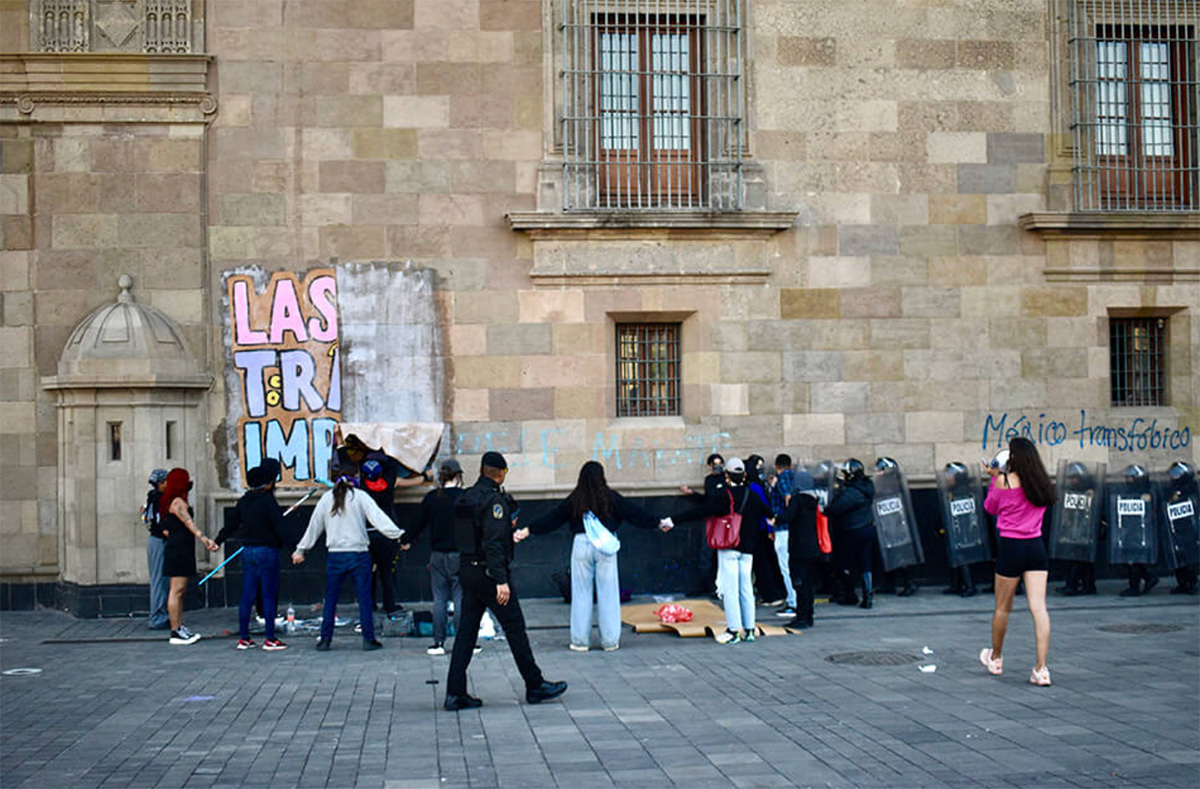
“We are not only demonstrating for these deaths, we also demand that the Comprehensive Trans Law be approved as a matter of urgency, which seeks to influence education, housing, health and work for trans people. We demand that all these legislative initiatives that favor people of sexual diversity be unblocked. And that Morena, even though the majority in the Chamber of Deputies and Senate, have remained silent, they have not done anything, they do not have a clear position against violence towards LGBTTTIQ+ people … even when they have boasted of being a left-wing and progressive party throughout the 6-year period and that they support vulnerable populations.” – Victoria Sámano, trans activist and founder of LLECA (Listening to the Street)
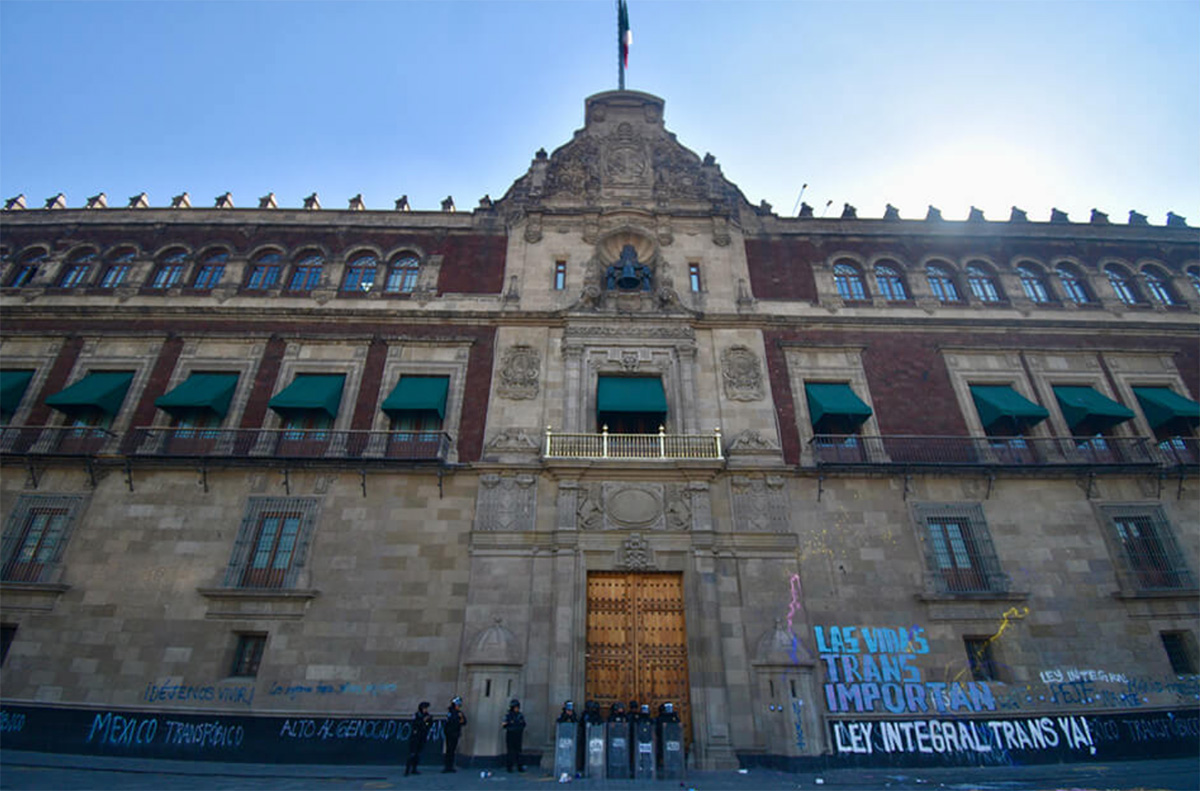
This wave of transfemicides occurs in a context of escalating violence and attacks against LGBTTTIQ+ people, including activist and public figures such as Nicté Chávez or Paola Suárez, and the proliferation of hate speech against trans women and LGBTTTIQ+ people by public officials. According to data from Letra Ese, in 2023 there were 58 murders of LGBTTTIQ+ people, 35 were trans women.
Mexico
Latin America’s first nonbinary judge found dead in Mexico home
Authorities say Jesús Ociel Baena showed signs they were stabbed
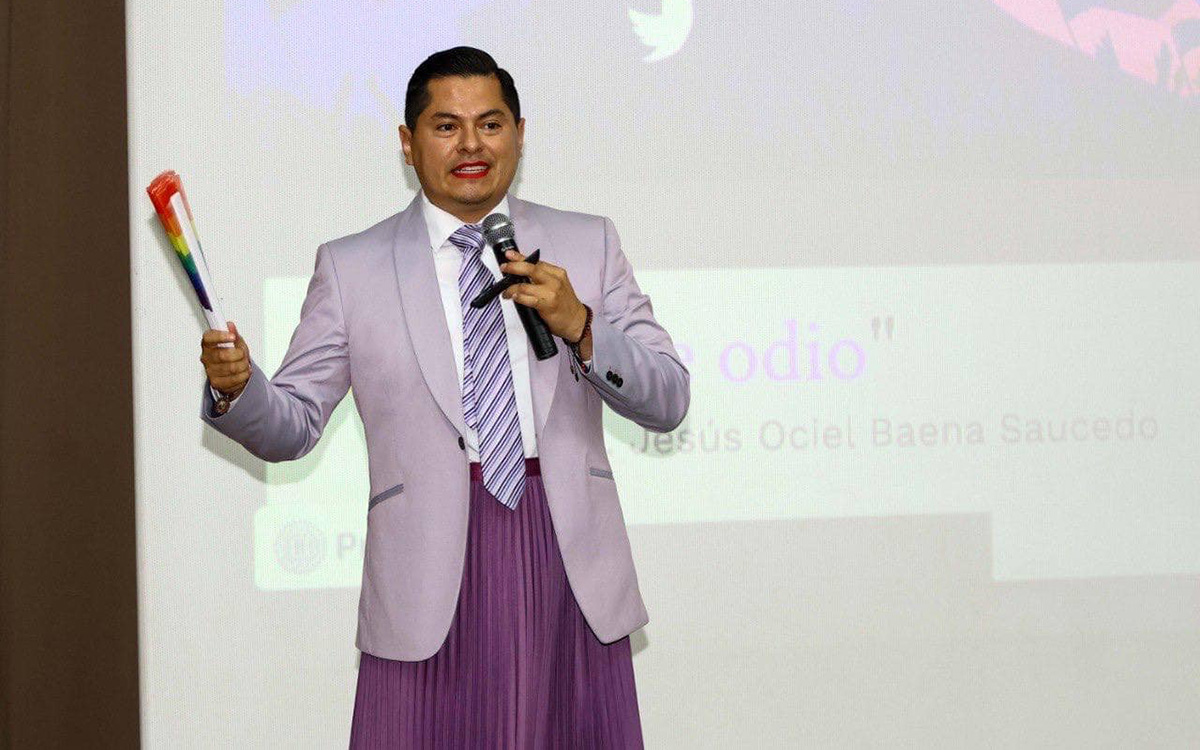
Authorities in Mexico’s Aguascalientes state on Monday found Latin America’s first nonbinary judge dead in their home.
The Associated Press reported Jesús Ociel Baena’s body was discovered next to another person who media reports and an LGBTQ rights group identified as their partner. State prosecutor Jesús Figueroa Ortega told reporters during a press conference the two victims showed signs they had been stabbed.
Aguascalientes state is located in central Mexico.
The AP reported Baena in October 2022 became a magistrate on Aguascalientes’ electoral court. Baena in June was one of the first people in Mexico to receive a passport with a nonbinary gender marker.
Violence based on gender identity and sexual orientation remain commonplace in Mexico.
The AP reported Baena in the weeks before their death had received death threats. Federal Security Secretary Rosa Icela Rodríguez on Monday said it remains unclear if the murders were “a homicide or an accident.”
The New Gay Times, the Washington Blade’s media partner in Mexico, reported LGBTQ rights groups across the country have demanded “a definitive and specialized investigation” into Baena’s murder. Thousands of people on Monday who took part in a march in Mexico City demanded justice for Baena.
“We are and will be there for you, dear Ociel,” said Casa Refugio Paola Buenrostro, a shelter in Mexico City that Casa de las Muñecas Tiresas, a local transgender rights group, runs, on Monday in a post to its Facebook page. “Your fight will not be in vein.”
-

 State Department4 days ago
State Department4 days agoState Department releases annual human rights report
-

 District of Columbia2 days ago
District of Columbia2 days agoCatching up with the asexuals and aromantics of D.C.
-

 South America2 days ago
South America2 days agoArgentina government dismisses transgender public sector employees
-

 Politics5 days ago
Politics5 days agoSmithsonian staff concerned about future of LGBTQ programming amid GOP scrutiny



